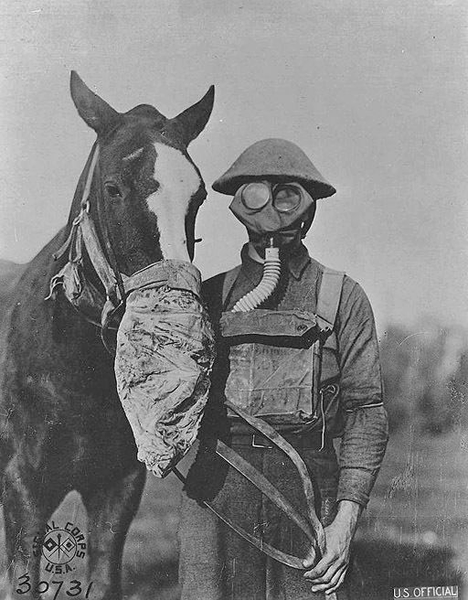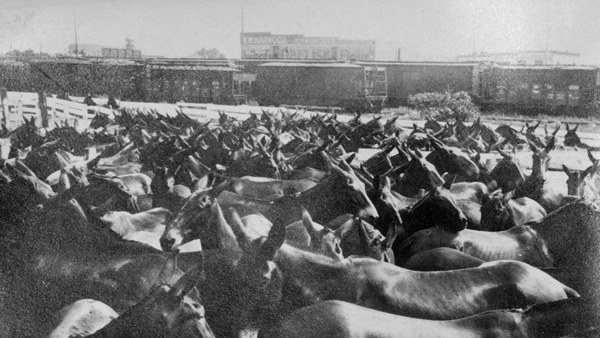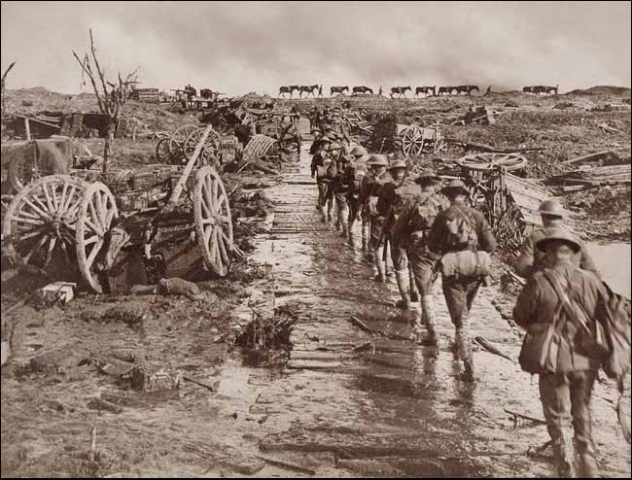Learn More About the 10 Million Horses and Mules That Served During WWI
 Brooke USA, along with the World War I Centennial Commission, has announced the completion of their Horse Heroes website, in commemoration of the World War I Armistice Centennial. Horse Heroes is an extensive and meticulously researched web-based presentation documenting all aspects of the use of American horses and mules in World War I.
Brooke USA, along with the World War I Centennial Commission, has announced the completion of their Horse Heroes website, in commemoration of the World War I Armistice Centennial. Horse Heroes is an extensive and meticulously researched web-based presentation documenting all aspects of the use of American horses and mules in World War I.
With more than 75,000 words of text and 250 images and video clips, the website is suitable as a resource for public school teachers as well as for college-level course material. Jo Ellen Hayden (B.A.,M.A., History), who researched and authored the site, is available to speak on all aspects of the use of horses and mules in World War One, including providing university-level lectures. The site presents the largest collection of photographs of American animals in World War One available on the web.
Conceived and designed in collaboration with the U.S. World War One Centennial Commission, the website features accurate historical information on purchase, training, shipping, veterinary care, and battlefield conditions for these animals. Background about the war and its geography, trench warfare, weather in France, social conditions in 1914-1918, and basic information about horses and mules are provided in the “Setting the Scene” section of the website, to enhance understanding of how those conditions impacted equines and the men they served.
 Extensive information is presented about how the animals were used both as draft animals in harness, and as riding animals under saddle. There are sections on equipment such as harness, saddlery, shoes and vehicles, and how the mobilization for war impacted those industries. A section is devoted to the U.S. Army Veterinary Corps, which was formed only a year before the war began and struggled to provide care under unimaginably desperate conditions.
Extensive information is presented about how the animals were used both as draft animals in harness, and as riding animals under saddle. There are sections on equipment such as harness, saddlery, shoes and vehicles, and how the mobilization for war impacted those industries. A section is devoted to the U.S. Army Veterinary Corps, which was formed only a year before the war began and struggled to provide care under unimaginably desperate conditions.
World War One took place between July 1914 and November 1918 and was one of the deadliest conflicts in world history. More than 9 million combatants and 7 million civilians died as a result of the war, as well as millions of horses and mules (there is no exact count, but by most estimates the number was approximately 8 million).
The United States officially entered the war April 6, 1917. Some 4.7 million Americans stepped forward to serve in uniform during the war, 2 million of them were deployed overseas to fight, and 116,516 of them never made it home.
 During the war, animals were a commodity, and just as armed forces routinely left hardware and vehicles behind rather than pay to transport them back to the U.S., the horses and mules were disposed of wherever they happened to be at the end of the war. Some were sold to be slaughtered, as human consumption of horse meat was common in some parts of Europe. Others were sold as farm or utility animals to the local populace. At least 10 million horses and mules were used by all the various countries involved, and of those, at least 1.3 million came from the United States. Only about 200 returned to the U.S.
During the war, animals were a commodity, and just as armed forces routinely left hardware and vehicles behind rather than pay to transport them back to the U.S., the horses and mules were disposed of wherever they happened to be at the end of the war. Some were sold to be slaughtered, as human consumption of horse meat was common in some parts of Europe. Others were sold as farm or utility animals to the local populace. At least 10 million horses and mules were used by all the various countries involved, and of those, at least 1.3 million came from the United States. Only about 200 returned to the U.S.
Brooke USA traces its roots to the work of Dorothy Brooke, who rescued 5,000 former war horses and mules who were left behind in Cairo by the British army after the war. The London-based charity subsequently named in her honor, Brooke, has over the past 84 years become the world’s largest international equine welfare charity, with programs in some of the poorest countries on earth.
Emily Dulin, executive director of Brooke USA said, “Partnering with the United States World War One Centennial Commission has been our great honor, and a true labor of love for our extraordinary volunteer, Jo Ellen Hayden, who researched, wrote and curated this impressive work. It’s a beautiful tribute to the animals who gave so much to the free world, and a perfect tie to the beginning of Brooke and subsequently, Brooke USA.”
“When people are aware of the past, the present becomes more meaningful to them,” Brooke USA researcher Hayden said in support of the cause. “The horses that Dorothy Brooke rescued in Egypt in 1931 had brands that identified them as having been owned by the British army. Yet, that army could not protect them from the working conditions imposed by their new owners in Egypt. Those new owners were in large part ignorant of how to care for their animals, and were living very difficult lives themselves. It is no different in the countries where Brooke works today.”
“For Brooke USA, the memory of World War One’s horses and mules inspires our work every day — we have never forgotten, and we are putting that memory to a very practical use by improving the lives of working equines and their human families every day, every year, all over the developing world.”
 Both Brooke USA and the United States World War I Centennial Commission hope the new site will encourage people to learn more about their country’s history and how they may help equines in similar devastating situations today by supporting Brooke’s work abroad. By continuing to educate owners on sustainable practices, proper nutrition and veterinary care, Brooke improves the lives of millions of animals, benefiting millions of people who depend on them, each year.
Both Brooke USA and the United States World War I Centennial Commission hope the new site will encourage people to learn more about their country’s history and how they may help equines in similar devastating situations today by supporting Brooke’s work abroad. By continuing to educate owners on sustainable practices, proper nutrition and veterinary care, Brooke improves the lives of millions of animals, benefiting millions of people who depend on them, each year.
The U.S. World War I Centennial Commission was established by Congress in 2013 to provide education programs, public outreach, and commemorative events regarding the American involvement in the war.
Brooke USA was founded in 2007 as a sister organization to Brooke, the world’s largest equine welfare charity. How fitting, since it is quite possible that some of the horses Dorothy Brooke rescued in Egypt actually came from the U.S., because a significant percentage of British army horses were purchased in the U.S.
To learn more about Brooke USA, please go to www.BrookeUSA.org or contact or 859-296-0037.










